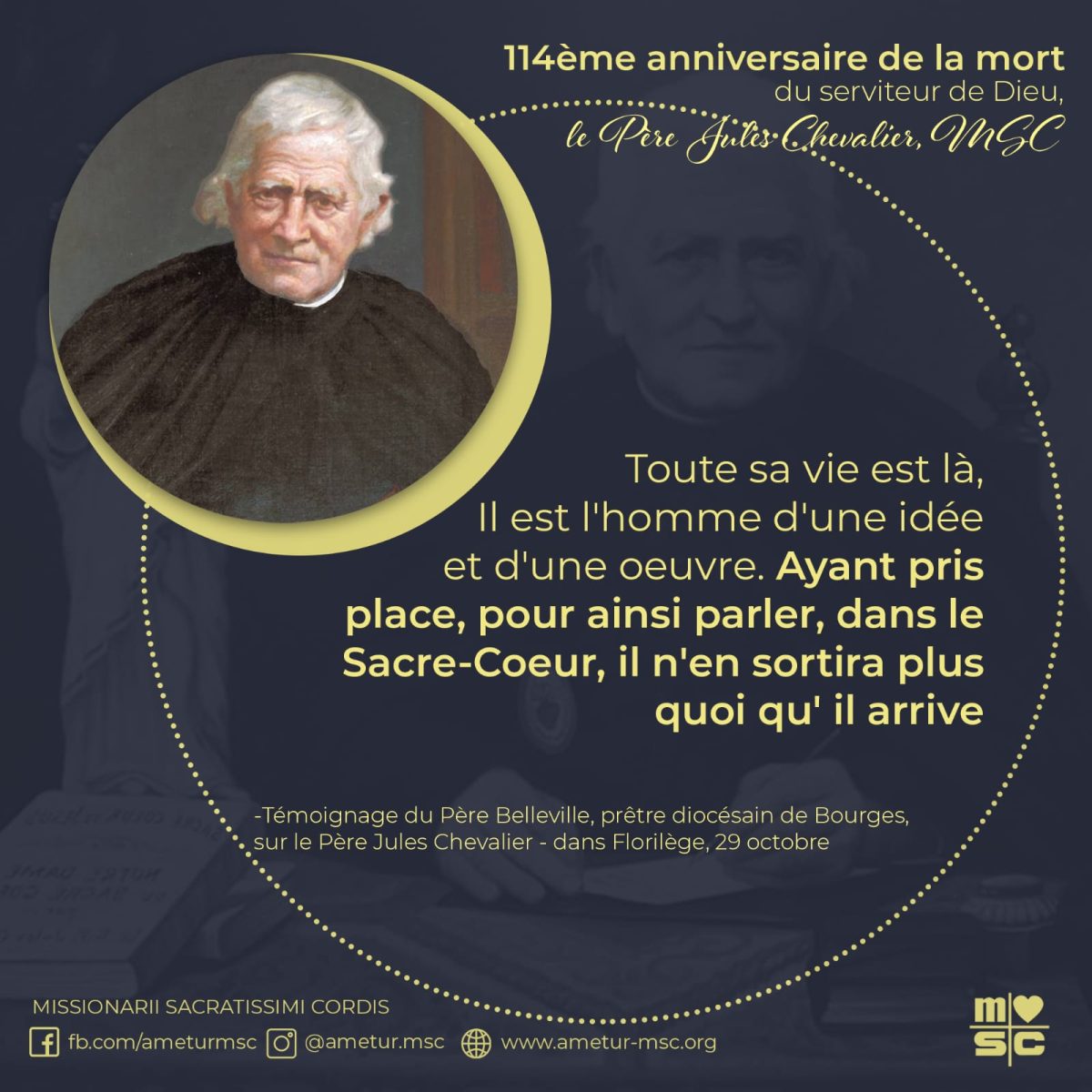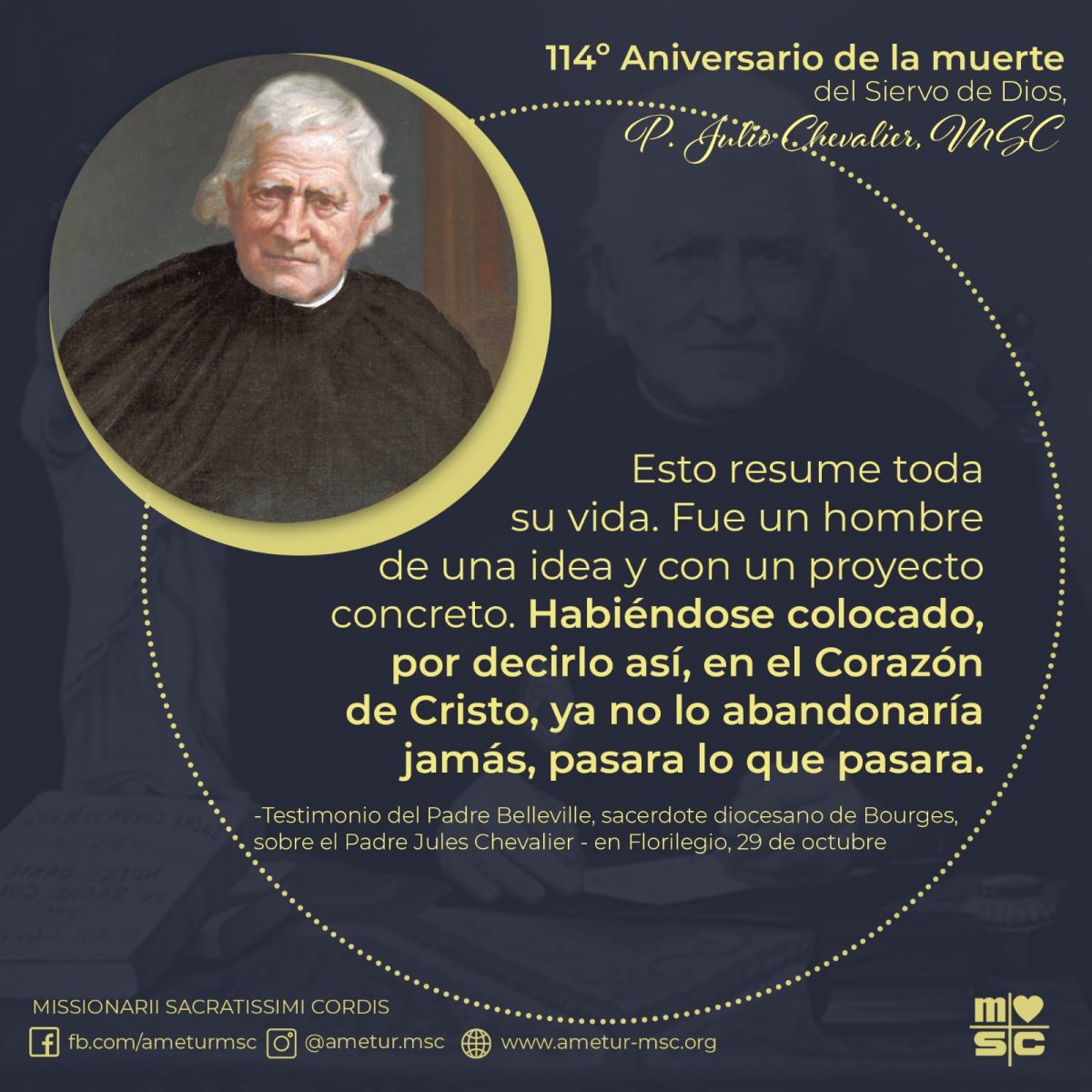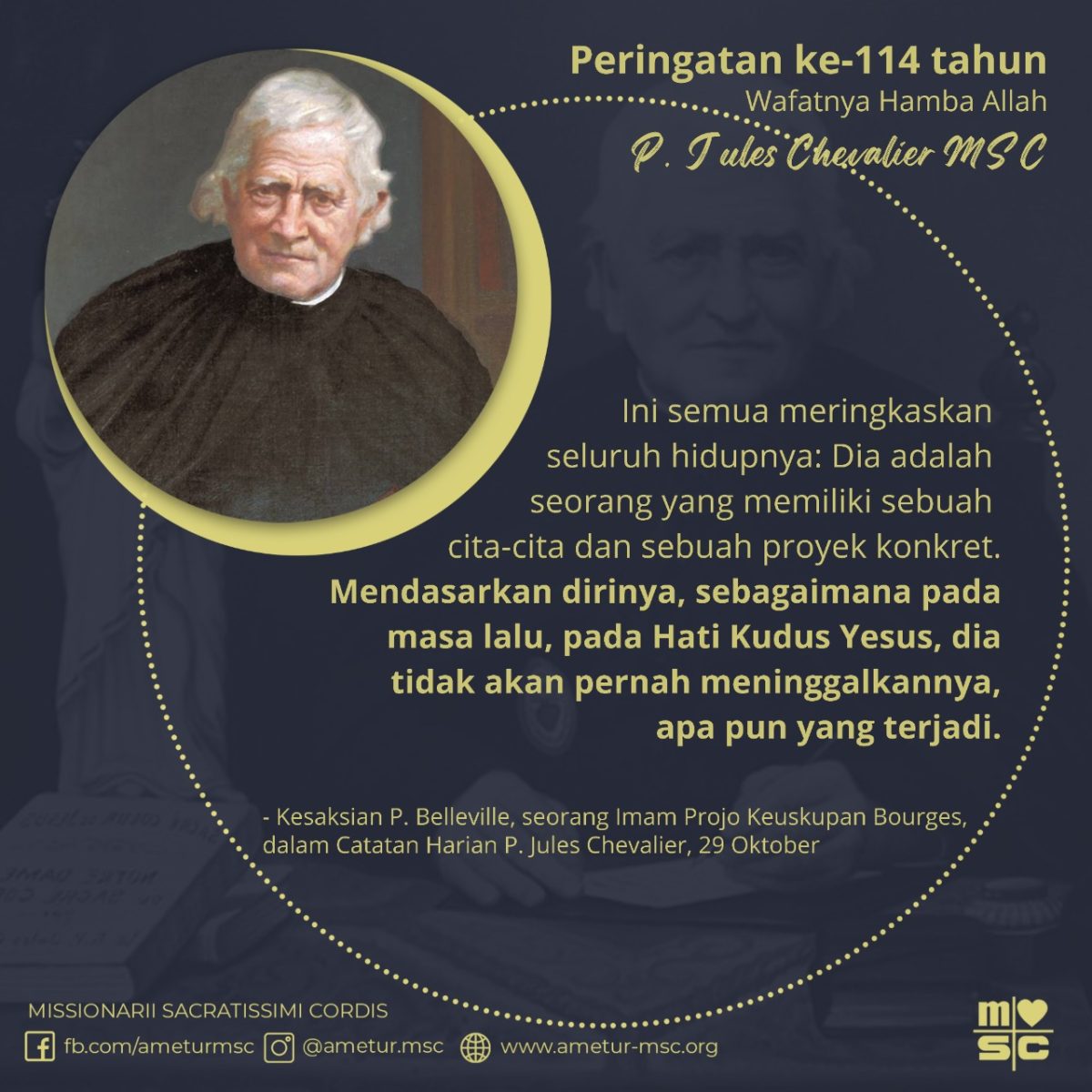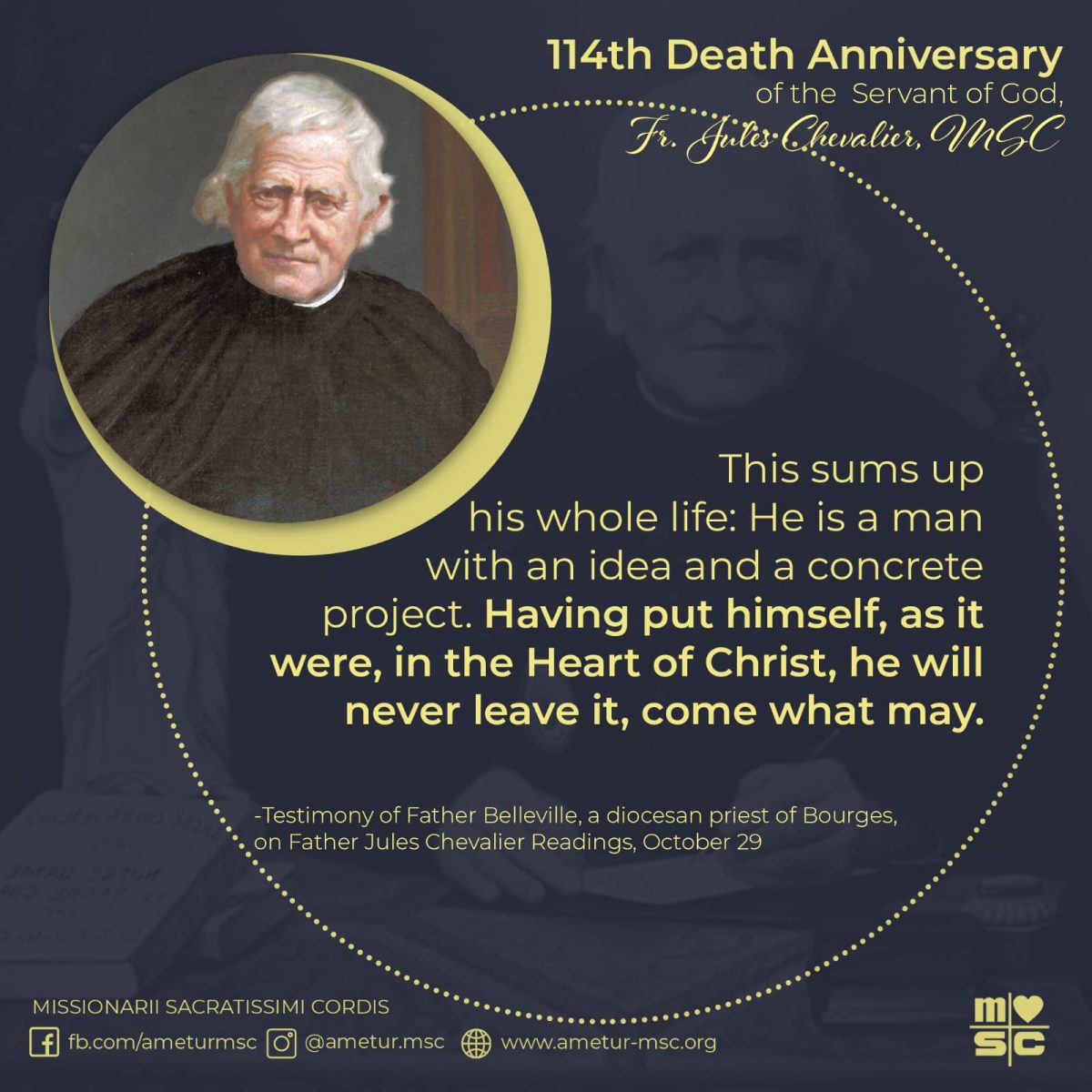
Greetings to our MSC confrères around the world and special thoughts and blessings on this day of the Anniversary of the death of our beloved founder, Fr. Chevalier. The following text is worthy of our ongoing reflection. It is in part of the homily given by the Superior General, Fr. Abzalón, during our Feast Day community celebration of Mass with members of the Italian Province, including Fr. Mario Scalici, MSC, the Italian Provincial and the four formandi of the province. We trust you all had joyful and inspiring celebrations and that you can use the following words to help inspire you in your mission. God bless you all. Chris Chaplin, msc
Synodality should begin to be for us a feature of our humanity, not only of our conception of Church, of mission, of community. But something much deeper, a human attitude towards the personal and collective reality we live today.
Humanity is manifested not only in the gifts and strengths that each of us has, but above all in our vulnerabilities and weaknesses.
Looking for human and vulnerable traits of Fr. Chevalier, which could show me his synodality, I found this as a very important one:
According to Fr Piperon’s testimony about the last conversation he had with Fr Chevalier, when Chevalier expressed to him his awareness that the end of his life was near. Chevalier expressed that he had confessed his limitations, even sacramentally – this shows his limited trait. But the most human expression of Chevalier, as Fr Piperon felt it, was when Fr Chevalier asked Fr Piperon for forgiveness. According to Fr Piperon, Fr Chevalier reverses the roles. Fr. Chevalier leaves the paradigm of the Father who advises and knows everything, and lives the paradigm of the one who asks for forgiveness and expresses his awareness of his vulnerability.
“He spoke to me of intimate matters and gave me his fatherly advice. Then, after a moment of recollection, he said in a tone of deep emotion: “Dear Father, my end is near. At any moment God may call me to himself. I await his hour in peace, full of confidence in the inexhaustible mercy of the Heart of Jesus. I am telling you for your consolation that a few days ago I made a review of my whole life and a general Confession. Now nothing troubles me. I am ready to die whenever God pleases”.
(Piperon, Notice, p. 290)
He then added with deep humility and a pleading voice that brought tears to my eyes: “I have wronged you many times in the long years we lived together. I have asked God’s pardon and I firmly trust he has granted it to me. Tell me yourself that you pardon me. It will be a relief and comfort to me at this hour”.
In his humility, our beloved Father had reversed the roles. I had nothing to pardon him for, but much to thank him for. With extreme kindness and patient forbearance, he had borne with me as one of his religious. After God and after Our Lady, it is to him I owe the fact of being able to follow my vocation and persevere in it. Kneeling at his feet, I thanked him from the depths of my heart. I begged him to pardon me for all the troubles I had caused him, and asked him to bless me, which he did with his usual kindliness.
Such was our last conversation, four years before he died. After that, the separation of exile and the weight of years deprived me of the consolation of seeing him again.”
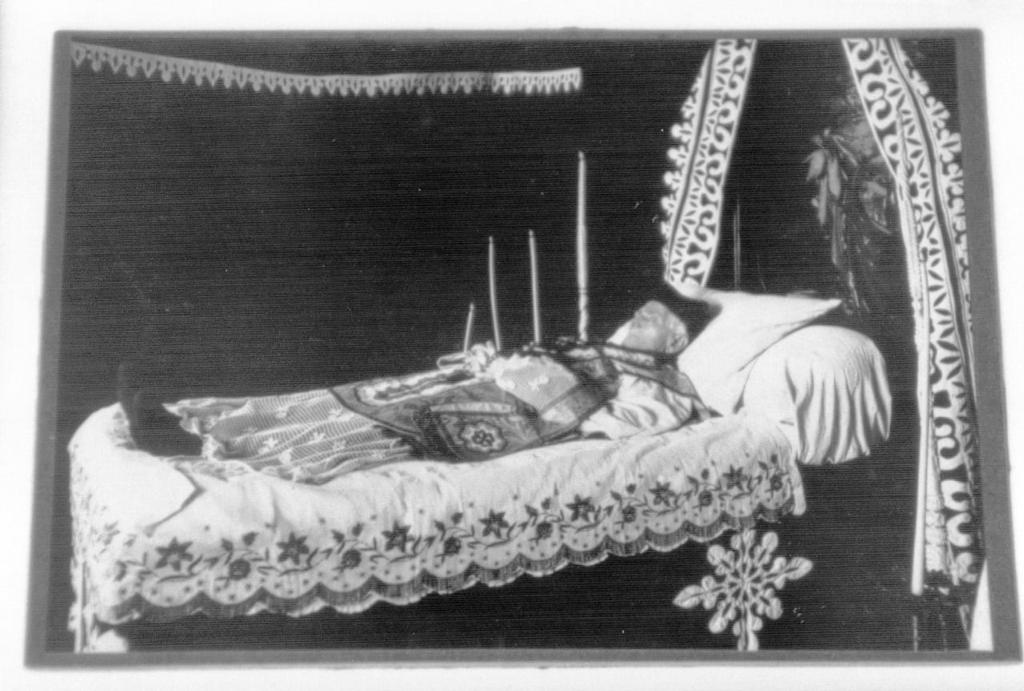
Father Chevalier’s sickness was rapidly bringing his life to an end. Monday, October 21 was the day on which God, in the plans of his infinite mercy, chose to call to himself his faithful servant. Our Superior General, Father Meyer, had set out in haste from Rome and arrived at Issoudun during the night. Immediately on his arrival, he hurried to Father Chevalier who recognised him and still had the strength to bless him. Father Meyer did not leave him again.
(Piperon, Notice, p. 318)
Towards midday a crisis seemed to indicate the end. Father Meyer then had the community assembled and with them recited the prayers for the dying. From this moment on prayers were said continually at the death bed of our Father. At three o’clock, there was a fresh crisis, no less painful than what had preceded; but the infirmarian’s intervention helped him surmount it. This was the last of his sufferings. After that he remained for more than two hours in great calm, almost motionless, as if in a peaceful sleep. Then, like the flickering out of a flame, he fell peacefully asleep in the Lord. The clock struck half past five and the evening Angelus was ringing in the parish.
Thus died our venerated and beloved Father, surrounded by his intimates and by some of his religious who had come from various parts to assist at his last hour and to render him their final respects. He had lived eighty—three years, six months and six days, the greater part of which — fifty-three years — had, by a special design of divine Providence, been spent in the town of Issoudun.
Fr Chevalier shows a humble and needy heart, and this he does: a synodal heart. To interpret the testimony of Fr Piperon: Fr Chevalier showed in this detail a change of mentality. Such changes are urgently needed today in our communities and in the Church. Today’s first reading emphasises the need for a more human language and approach to our weakness.
The fire spoken of in the Gospel could be felt and understood as the Spirit that comes and makes us build synodality, and this is achieved if this “fire” comes from our heart and is transmitted everywhere. According to our charism, love must be lived everywhere. It will be a synodal experience that will unmask divisions, that will be prophetic, therefore not based on an apparent or false peace. That is why Jesus, and also Fr. Chevalier experienced it in this way. This requires that this “fire-spirit” enters our heart and transforms us.
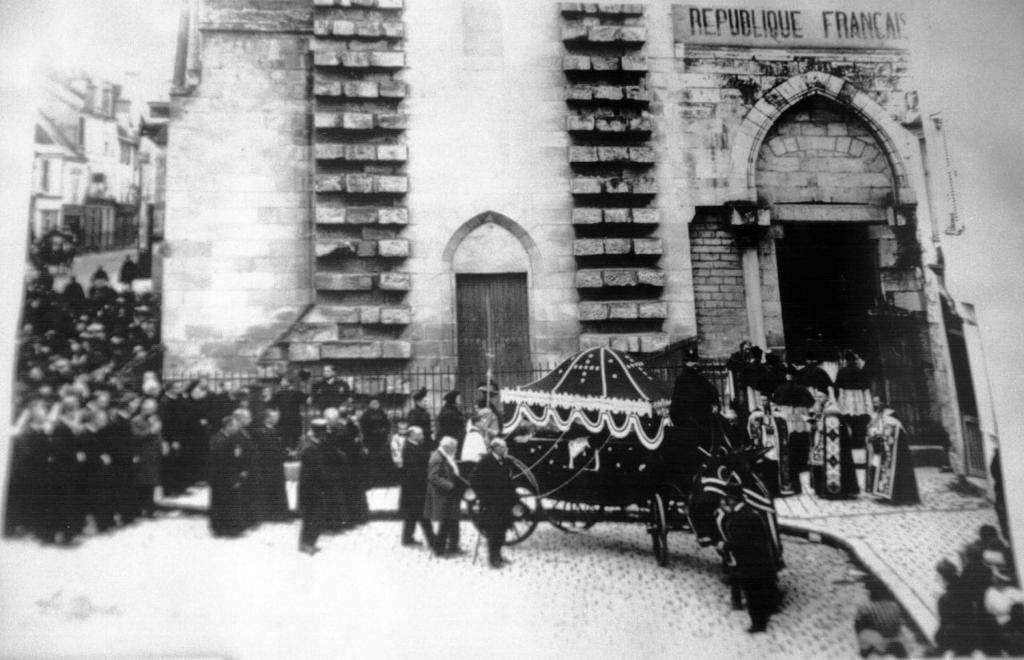
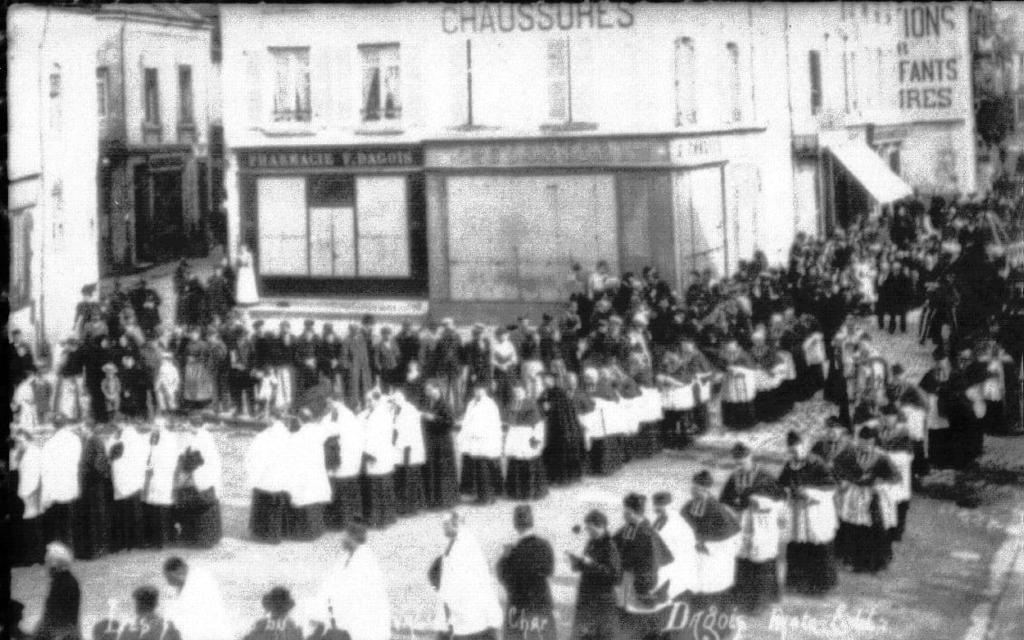
Fr. Chevalier shows clearly what the Gospel says today: the life of a Christian is not a life lived in a comfortable individualistic tranquility, but it is a set of discernments, sometimes difficult ones, of choices, decisions, temptations, family and community situations, misunderstandings etc. But as Fr Chevalier himself faced, this awareness of being a missionary body, his dream of mission humanised him, therefore, made him synodal and led him to face all the obstacles and to turn them into Means for the Mission. Only in this way will we transform reality.
Synodality – which is listening, co-responsibility, commitment, walking together, etc. – according to the Gospel and in the tradition of Fr Chevalier, urges us to confront the unjust social systems that destroy life, the Mother Earth, the Common Home today, that offer us a false peace. Without a real change of mentality there will be no synodality.
May this MSC feast make us put into practice the three verbs that the Pope proposed for this synodal process: Encounter, Listening and Discernment.
[Editor’s note: It is interesting to note the parallels between the “three verbs” that Pope Francis proposes for the Synodal process Encounter, Listening and Discernment, and the movements of the Heart in our own spirituality proposed by Frs. Cuskelly and Murphy: Encounter, Intimacy, Conversion through a profound entering into and knowing the Heart fo Christ, and Mission. Fr. Hans Kwakman, MSC reflects on these parallels in his own course of Heart Spirituality, available on this ongoing formation online platform.]
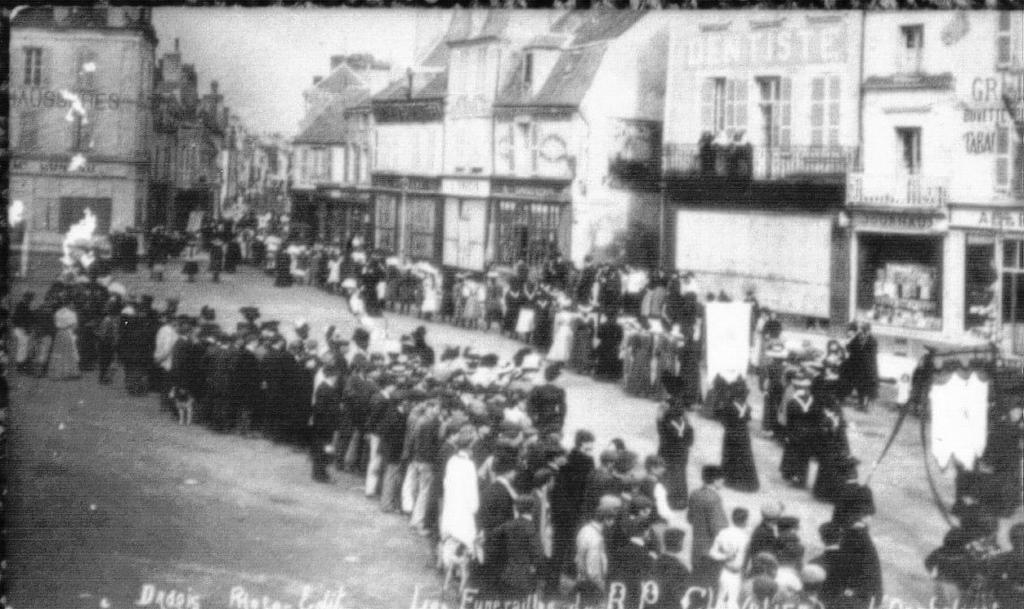
May the Feast of Fr Chevalier encourage us to listen with our hearts, to today’s reality, and from the Spirit of today’s Gospel, to make radical choices for the good of the mission.
Fr. Mario Abzalón Alvarado Tovar, MSC
Superior General

